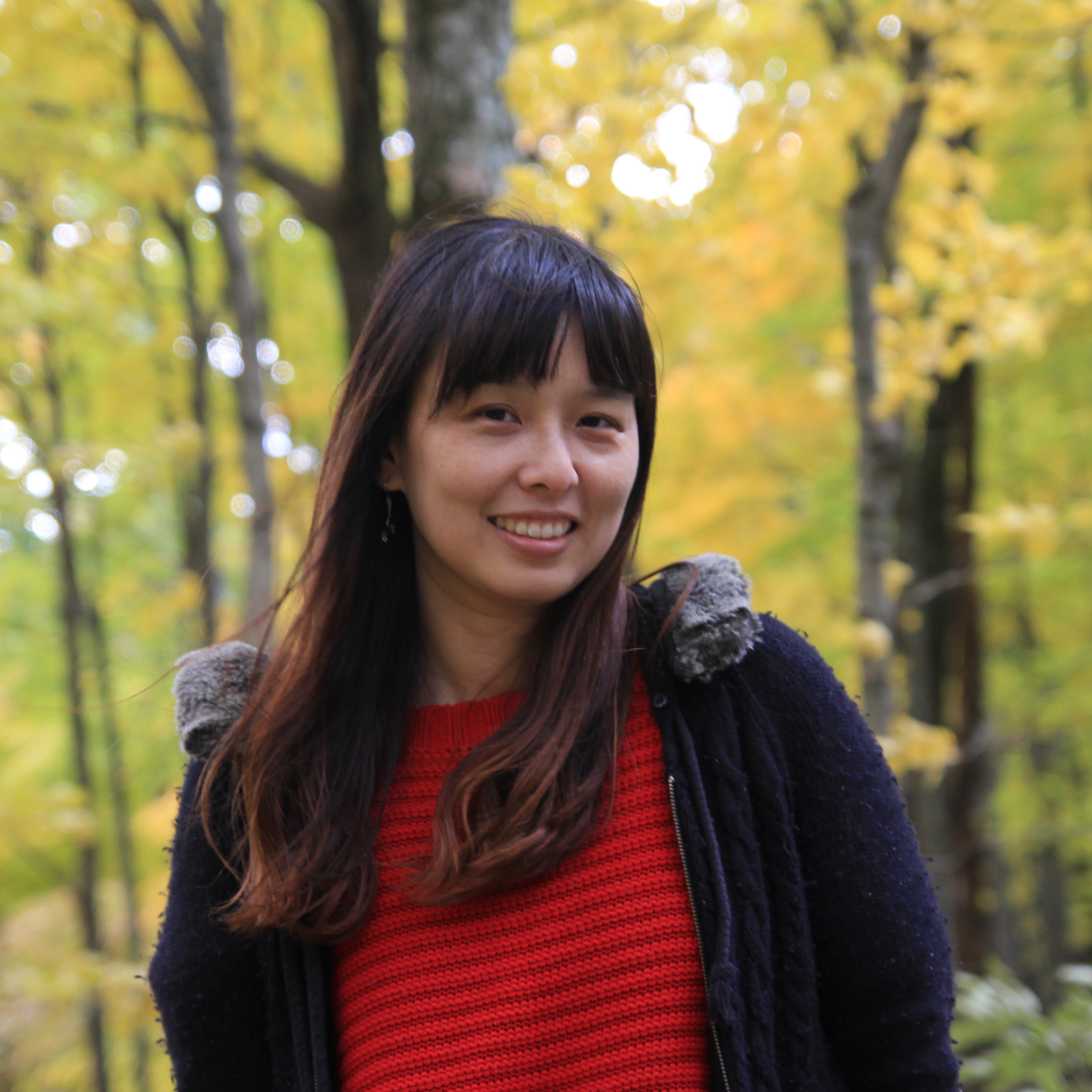
Speaker:
Christina Chung
Date:
2021-12-02 12:30:00
Location:
BlueJeans Events
Personal Informatics in the Changing, Social World
ABSTRACT
Personal informatics refers to information individuals can collect about themselves, such as food intake, physical activity, sleep, and mood. Current personal informatics tools have been designed primarily for personal use, focusing on quantitative measurements that are easy to collect via sensors or manual input. These systems often overlook the changing nature of everyday life, the social contexts individuals live in, the variety of goals and values they have, and the constraints and preferences associated with these contexts and values. My research has examined the collaborative use of personal informatics data and co-constructed experience in various contexts. In this talk, I will share a few recent studies unpacking ways to rethink personal informatics technology that considers the changing contexts of health behavior, shifting values and priorities, as well as the social roles and relationships that often deeply intertwine with health decisions.
BIO
Christina Chung is an Assistant Professor in Informatics and the Luddy Faculty Fellow 2020/2021 at the Indiana University Bloomington. She is also the director of the Proactive Health lab. Her research focuses on how ubiquitous computing and personal informatics data can be designed and shared to support relationships, motivate health behavior, and support collaborative care. She has published in top HCI conferences and medical journals; receiving a Best Paper Award, Honorable Mention, and Impact Award. Her research has been featured in mainstream media, such as CNN and Geekwire, and is supported by the National Science Foundation, IU Luddy Faculty Fellowship, and IU Precision Health Initiative. Christina received her Ph.D. in Human Centered Design and Engineering from the University of Washington while she was a member of the Design. Use. Build (DUB) group. Previously, she was also a software engineer in IBM Research Collaboratory Taiwan conducting service innovation research in health and wellness. She holds an M.B.A and B.B.A in Information Management from the National Taiwan University.
Video is not available for this event.

Speaker:
Clio Andris
Date:
2021-11-18 12:30:00
Location:
BlueJeans Events
Human Network Regions as Spatial Units for COVID-19 Policy Implementation
ABSTRACT
In the U.S., COVID-19 messaging and policy implementation (i.e. school closures and stay-at-home orders) are largely administered at the state level. This can be problematic, as functional metropolitan areas can straddle multiple states, and a single state may have subregions that are not well-connected. Much of our messaging for emergencies (such as hurricane warnings) is not at the state-level but at the county-level for these reasons. Such state-level policies have already resulted in friction in local communities--especially in Georgia. To define units for which it is reasonable to apply homogeneous rules, we construct regions that capture core geographies of social and movement behavior.
To create effective geographic regions for policy implementation, we apply community-detection algorithms to five large networks of mobility and social-media connections to construct geographic regions that reflect natural human movement and relationships at the county level for the continental United States. We measure COVID-19 cases, case rates, and case rate variation across adjacent counties and examine these dynamics along the boundaries of functional regions and state boundaries.
We find that regions constructed using GPS-trace ("trip") networks and commuter networks are the most effective natural partitions for capturing COVID-19 'hot spots'. Conversely, regions constructed from geolocated Facebook friend connections resulted in the least effective partitions. Regions derived from migration flows, Twitter connections, and state boundaries showed mixed results. This analysis reveals that functional regions derived from mobility data are more appropriate geographic units than states for making policy decisions about opening areas for activity, assessing vulnerability of populations, and allocating resources.
BIO
Clio Andris is an assistant professor in the School of City & Regional Planning and the School of Interactive Computing at the Georgia Institute of Technology. She directs the Friendly Cities Lab and conducts research in the fields of spatial social network analysis, urban planning, GIS, and geovisualization.

Speaker:
Noopur Raval
Date:
2021-11-11 12:30:00
Location:
CHIWork Zoom
Studying Intersectional Challenges in Gig Work: Lessons From the Global South
ABSTRACT
With the rise and proliferation of gig economy platforms providing ride hailing, food delivery and other app-based services on-demand in major urban centers of the world, there have been major transformations in work and life globally. Gig platforms have certainly disrupted and redefined the discovery and allocation of casual work through algorithmic management, creating grave concerns for regulating the future of work. Simultaneously, especially in the global South, gig platforms have also emerged as important avenues for gaining temporary paid work and socio-economic mobility for low income individuals, women and migrant workers. Drawing on over five years of ethnographic research with a variety of stakeholders in the gig economy including workers, managers, consumers and regulators, my work shows how platformization produces heterogeneous effects on the lives, livelihoods and productive and reproductive capacities of different individuals in urban India. This talk will draw on multiple case studies of gig work to show these heterogeneous effects and how everyday technology practice also informs platform design in return. I will also offer some considerations for HCI scholars looking to study the effects of emerging technologies in global South settings.
BIO
Noopur Raval is a postdoctoral researcher at the AI Now Institute and an adjunct professor at the Tandon School of Engineering at New York University. She received her PhD in Informatics from UC Irvine in 2020 and is a tech ethnographer and interdisciplinary scholar at the intersection of HCI, Communication and Media Studies, Cultural Anthropology and Postcolonial History. She has written extensively on gig work, platformization and the future of work in the global South. Her new work extends to studying the cultural labor and subjective decision-making by global South data annotators in order to train AI/ML systems. Her work has appeared in CSCW, CHI, ACM Interactions among other venues. She has also worked in UX research at multiple Microsoft Research labs. Noopur is an alumna of the Berkman-Klein Center for Internet & Society at Harvard University and the Center for Tech, Society and Policy at UC Berkeley.

Speaker:
Q. Vera Liao
Date:
2021-11-04 12:30:00
Location:
BlueJeans Events
Human-Centered Explainable AI (XAI): From Algorithms to User Experiences
ABSTRACT
Artificial Intelligence technologies are increasingly used to make decisions and perform autonomous tasks in critical domains. The need to understand AI in order to improve, contest, develop appropriate trust and better interact with AI systems has spurred great academic and public interest in Explainable AI (XAI). The technical field of XAI has produced a vast collection of algorithms in recent years. However, explainability is an inherently human-centric property and the field is starting to embrace human-centered approaches. Human-computer interaction (HCI) research and user experience (UX) design in this area are increasingly important especially as practitioners begin to leverage XAI algorithms to build XAI applications. In this talk, I will draw on our research and broad HCI work to highlight the central role that human-centered approaches should play in shaping XAI technologies, including to drive technical choices by understanding user needs, to uncover pitfalls of existing XAI methods, and to provide conceptual frameworks for human-compatible XAI.
BIO
Q. Vera Liao is a Principal Researcher at Microsoft Research Montreal. Her current interest is in human-AI interaction and explainable AI, with a focus on bridging state-of-the-art AI technologies and user-centered design practices. She serves as the Co-Editor-in-Chief for Springer HCI Series, on the Editorial Board of IJHCS and ACM TiiS, and has been on the Organizing Committee for IUI 2019 and CSCW 2021. Before joining MSR, she worked at IBM T.J. Watson Research Center.
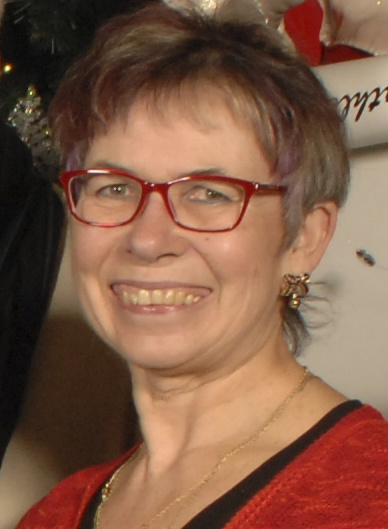
Speaker:
Krystina Madej
Date:
2021-10-28 12:30:00
Location:
BlueJeans Events
Representation of Disability in Children’s Video Games
ABSTRACT
While video game accessibility for people with disability has been given serious thought and been addressed by video game developers since the early 2000s, representation of disability in video games has been less well addressed. How children’s perception of disability is established and maintained or altered through playing video games in which characters with disabilities are represented has received no attention at all. The most instrumental type of representation of disability in games should provide children with exposure to and engagement with new video game schemas that add understanding and help create meaning about the disability represented.
Video games differ significantly in how they represent disability. Representation can be cosmetic, providing exposure but not gameplay utility; it can be incidental, used as a device that provides purpose for the narrative; or it can accurately represent the disability and show how the character copes with their disability. How representation is perceived by children, i.e.. the message that is received, depends on what stage a child may be in in their cognitive development, the society of which they are a part, and their exposure to disability in games previously.
This talk shares a current EU research project in which nineteen games (1994-2020) with a PEGI 3 rating, and seventeen games (2004 to 2020) with a PEGI 7 rating, were reviewed and characters analyzed to consider how representation of disability maps against cognitive development and psychomotor and cognitive needs and abilities of children ages 3 to 12.
BIO
Dr. Krystina Madej has recently retired from Georgia Tech after ten years as Professor of the Practice. She continues her research at GT and at the University of Lower Silesia, Wroclaw Poland, where she has also taught since 2015. Her work examines children’s emerging narrative intelligence as they develop and how humans have adapted their narratives to changing media throughout the centuries. Key research includes children's interaction with digital games, interactivity and collaboration in social media, and Disney's approach to stories across media, and has been documented in the books Physical Play and Children’s Digital Game; Interactivity, Collaboration, and Authoring in Social Media; and Disney Stories: Getting to Digital 2nd Edition (published in fall 2020). She has also edited Engaging Imagination and Developing Creativity. Previous to her work in academia, she was principal in a communications and industrial design business for 15 years, where, as design strategist, she planned and created successful branding programs and exhibits for government, business, industry, and museums.

Speaker:
Jer Thorp
Date:
2021-10-21 12:30:00
Location:
BlueJeans Events
Living in Data
ABSTRACT
To live in data is to be incessantly extracted from, to be classified and categorized, statisti-fied, sold and surveilled. Data (our data) is mined and processed for profit, power and political gain. Our clicks and likes and footsteps feed new digital methods of control. In this talk Jer will propose a variety of answers to a crucial question of our time: how do we stop passively inhabiting data, and become active citizens of it?
BIO
Jer Thorp is an artist, writer and teacher living in New York City. He is best known for designing the algorithm to place the nearly 3,000 names on the 9/11 Memorial in Manhattan. Jer was the New York Times' first Data Artist in Residence, is a National Geographic Explorer, and in 2017 and 2018 served as the Innovator in Residence at the Library of Congress. Jer is one of the world's foremost data artists, and is a leading voice for the ethical use of big data. Jer’s data-inspired artwork has been shown around the world, including most recently in New York’s Times Square, at the Museum of Modern Art in Manhattan, at the Ars Electronica Center in Austria, and at the National Seoul Museum in Korea. His work has also appeared in a wide variety of publications, including Scientific American, The New Yorker, Popular Science, Fast Company, Business Week, Popular Science, Discover, WIRED and The Harvard Business Review. Jer is a Rockefeller Foundation Fellow, and an alumnus of the World Economic Foundation’s Global Agenda Council on Design and Innovation. He is an adjunct Professor in New York University’s renowned Interactive Telecommunications Program (ITP), and is the Co-Founder of The Office for Creative Research. In 2015, Canadian Geographic named Jer one of Canada’s Greatest Explorers. Jer’s book 'Living in Data’ is published by Farrar, Straus and Giroux and is in bookstores now.

Speaker:
Beth Mynatt
Date:
2021-10-14 12:45:00
Location:
BlueJeans Events
AI Caring
ABSTRACT
We anticipate that AI will play a pivotal role in supporting the goals of older adults to “age in place” and sustain quality of life and independence. However, designing these technologies requires supporting the actions of older adults alongside their caregivers, spouses, adult children, and healthcare providers while being able to draw on a longitudinal understanding of routines, habits, norms, and values. In this talk, I draw from several projects to reflect on the challenges incumbent in designing for informal care networks. These challenges include establishing trust, respecting privacy, retaining autonomy, and combatting disparities. While these challenges are significant, the benefits of designing for care networks are substantial and this multi-stakeholder approach has the greatest potential for long-lasting care. This work now grounds the “use inspired” research for the new NSF AI Institute for Collaborative Assistance and Responsive Interaction for Networked Groups (AI-CARING).
BIO
Dr. Elizabeth Mynatt is a Regents’ and Distinguished Professor in the College of Computing and the Executive Director of Georgia Tech’s Institute for People and Technology that pursues innovative research to promote healthy, productive and fulfilling lives on a global scale. Over the past two decades, Mynatt’s research has focused on the role of ubiquitous computing in health. She currently leads the NCI funded MyPath project, creating an application that provides breast cancer patients with personalized recommendations during their cancer journey. Mynatt co-leads the Emory-Georgia Tech program to empower people with mild cognitive impairment (MCI). She is also one of the principal researchers in the Aware Home Research Initiative; investigating the design of future home technologies, especially those that enable older adults to continue living independently as opposed to moving to an institutional care setting. Mynatt has been recognized as an ACM Fellow, a member of the SIGCHI Academy, and a Sloan and Kavli research fellow. She has published more than 100 scientific papers and chaired the CHI 2010 conference, the premier international conference in human-computer interaction. Prior to joining the Georgia Tech faculty in 1998, Mynatt was a member of the research staff at Xerox PARC.

Speaker:
Mark Braunstein
Date:
2021-09-30 12:45:00
Location:
BlueJeans Events
How Health Informatics Will Transform Healthcare
ABSTRACT
Computers have been used in healthcare from their earliest days. Much visionary work was done in the 1950's and 60's but it inevitably failed to achieve acceptance for technical and non-technical reasons we will discuss. As a result, healthcare is correctly widely viewed as the last major industry to embrace the information age. That is changing. We will explore the new technology landscape and look at some of the early transformative applications it has enabled around the world.
BIO
After over 25 years as a company founder in the health IT field, Dr. Braunstein became a Professor of the Practice in the School of Interactive Computing in 2007. For years, he taught Georgia Tech's introductory health informatics course and lectured and wrote extensively about the field. He became an early advocate of FHIR, the API that is patterned after the web and is fueling a transformation in how informatics is deployed in healthcare. He just completed the second edition of his textbook, Health Informatics on FHIR, and this talk will highlight the most interesting innovations that he discovered writing it.

Speaker:
Noura Howell
Date:
2021-09-23 12:45:00
Location:
BlueJeans Events
Exploring the promise and peril of emotion AI, designing for emotional meaning-making with data, imagining an affirmative biopolitics with data
ABSTRACT
Emotion AI, which predicts psychological characteristics from data, offers potentially transformative benefits for societal well-being, productivity, and security. Drawing on increasingly available biodata--data about people’s bodies and behaviors, such as video, audio, or heart rate--emotion AI predicts emotions, stress, focus, and other characteristics. Emotion AI increasingly informs sensitive decisions in many varied contexts, from social media to online education, online job interviews, or security surveillance systems and criminal investigations.
A key challenge to emotion AI is that algorithmic ways of modeling emotion differ fundamentally from human ways of understanding emotion, making emotion AI predictions difficult to meaningfully interpret and apply in real-world contexts. In addition, even people aware of widespread video surveillance may be unaware that an additional layer of algorithmic surveillance using emotion AI is making sensitive predictions about their inner psychology from video of their facial expressions, leading to privacy and civil liberties risks.
My design research explores both the promise and peril of emotion AI, and contributes design tactics to more effectively support social, embodied, and emotional meaning-making with data. Combining building custom biosensing technologies and realtime data displays with concepts from the arts and humanities, my work explores, how might we imagine a more affirmative biopolitics with data?
BIO
Noura Howell is an assistant professor in Digital Media at Georgia Tech. She completed her PhD at the School of Information at the University of California, Berkeley, where she was a member of the BioSENSE lab. Before grad school she worked as a human centered designer and engineer in Singapore, Morocco, and China, as well as at the MIT Media Lab, Intel Labs, Microsoft, and The Echo Nest.

Speaker:
Duri Long
Date:
2021-09-09 12:30:00
Location:
BlueJeans Event
Fostering Public Understanding of AI Through Education & Design
ABSTRACT
As artificial intelligence is integrated into our schools, homes, and workplaces, it becomes increasingly important to foster public understanding of AI. My research has explored two important facets of this issue—developing AI education initiatives and expanding existing AI systems to improve their ability to interact naturally with humans and foster understanding through interaction. Several design themes guide my work, including using embodied interaction, collaboration, and creative exploration to reduce intimidation and foster curiosity and learning. I will discuss my research investigating how to define AI literacy, and I will present several activities I have designed for informal learning spaces that can foster family learning about AI. I will also discuss how my research on developing co-creative AI systems can inform the development of more understandable AI systems. My talk will conclude with reflections on how education and system design can be leveraged to create more equitable, understandable AI in our everyday lives.
BIO
Duri Long is a Research Scientist at Georgia Tech working in the Expressive Machinery Lab. She is a human-centered AI researcher interested in issues surrounding AI literacy and human-AI interaction. Duri's research looks to how humans interact and learn as a way of informing the design of public AI literacy interventions as well as the development of AI that can interact naturally and improvise creatively with people in complex social environments. She employs a variety of methodologies and theoretical frameworks in her research, drawing on the learning sciences, design research, and cognitive science. She has experience working with artists and museums around the country to develop co-creative, embodied exhibits and art installations involving AI and technology. Duri holds a PhD in Human Centered Computing from Georgia Tech and degrees in Computer Science and Dramatic Art from the University of North Carolina at Chapel Hill.

Speaker:
Gabriela Marcu
Date:
2021-04-22 12:30:00
Location:
BlueJeans Event
Designing for Coordination and Intervention in Behavioral Health
ABSTRACT
Behavioral and mental health is an underserved area, and receives less focus in health informatics research. Technology can play a role in different types of coordination with meaningful impact on behavioral and mental health. However, it is critical for design in this space to engage with issues of agency, marginalization, and trauma. In this talk, I will share two projects in which I have grappled with these issues. The first explores challenges of coordination across clinical, school, and home contexts in support of children’s behavioral development. Collaborative technologies are needed to help stakeholders cross these organizational and disciplinary boundaries, so they can reduce tensions and work together. The second project I will share involves the coordination of strangers. UnityPhilly is a community-based intervention that uses a smartphone app to coordinate life-saving layperson response to an opioid overdose. Just prior to the pandemic, we completed a one-year pilot study with 112 participants who helped to revive 74 victims of overdose. Across these two projects, I will reflect on how we can design mobile and collaborative technologies to fill gaps in care coordination and provide supplemental interventions for behavioral and mental health.
BIO
Gabriela Marcu is an Assistant Professor at the University of Michigan School of Information. She studies the delivery of behavioral health services and the use of digital health interventions. Her expertise is in designing and evaluating use of systems for health through qualitative methods, participatory design, community-based approaches, and field studies. She involves undergraduate researchers in all of her projects, and has been the recipient of a NCWIT Undergraduate Research Mentoring Award as well as an Early Career Mentor Award from the Council on Undergraduate Research’s Math and Computer Science Division. She holds a Ph.D. in Human-Computer Interaction from Carnegie Mellon University, and a B.S. in Informatics from the University of California, Irvine.
Video is not available for this event.
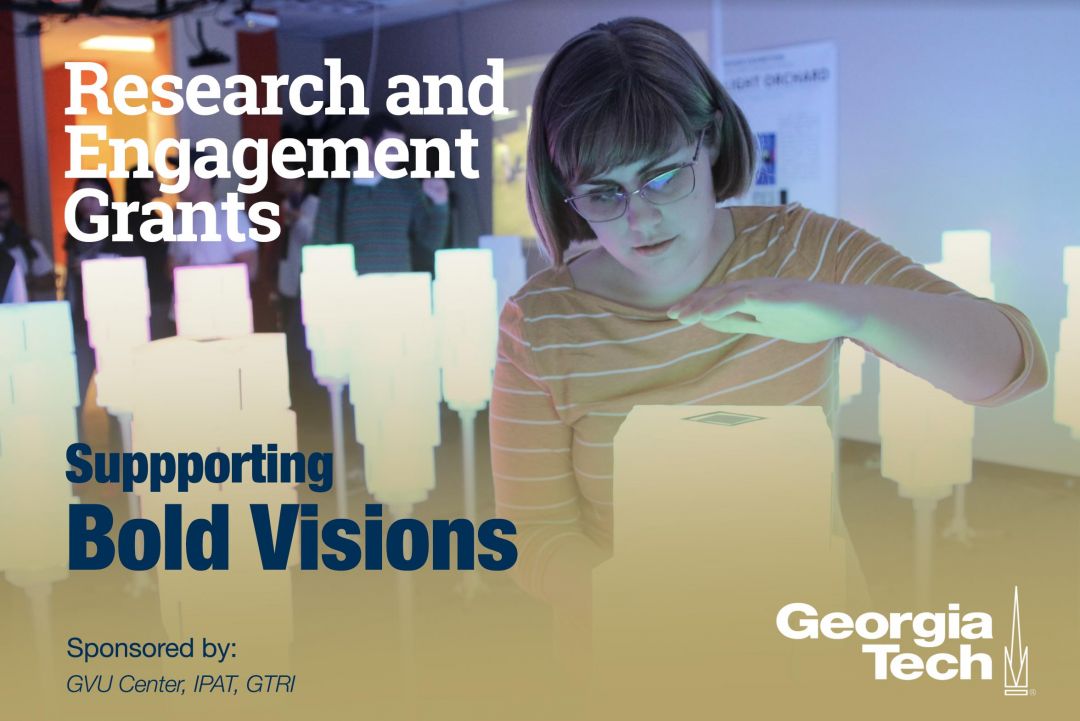
Speakers:
Laura Levy, Sarah Milkes Espinosa, Sang Leigh, Brooke Bosley, Caleb Ziems, Russ Clark
Date:
2021-04-15 12:30:00
Location:
BlueJeans Event
Research and Engagement Grant Winners for Academic Year 2020-2021
Sorting Through the Racks and CAPTCHAs: Exploring the Use and Regulation of Automation Tools by Communities of Online Fashion Resellers in Poshmark.com.
Christopher Le Dantec (LMC), Robert Rosenberger (Public Policy), Sara Milkes Espinosa (LMC)
We are starting a collaboration between Digital Media and Public Policy that explores how gig workers’ labor is enmeshed with automation tools in Poshmark.com. Poshmark is an online reselling platform for secondhand fashion that offers a social retail model, like social media for secondhand clothes. This grant from IPAT and the GVU Center will allow us to carry out interviews with various workers that belong to the Poshmark ecosystem as sellers, as virtual assistants that fill the roles automation would otherwise do, or as the programmers that offer the automation tools. According to the company, most sellers and buyers are women in the U.S and Canada. As many other platforms of the gig economy, Poshmark has many sellers looking for supplemental income while others derive their earnings fully from their sales on the platform. The use of automation by the sellers is a complex issue because it is against Poshmark’s Terms of Service (ToS), yet the site design requires high amounts of tedious clicking and routine interaction to maintain product visibility. The interviews will allow us to better understand how the different resellers on Poshmark justify the use of automation and work along the boundaries of the ToS. We hope this will contribute to shedding light into the complex ways contemporary laborers are navigating a work landscape that increasingly includes automation.
Electrochromic Skin: Exploring the Design and Fabrication of Epidermal Displays for Somatic Data-Awareness.
Sang Leigh (Industrial Design), W. Hong Yeo (Mechanical Engineering), Noah Posner (College of Design)
We explore an accessible and scalable fabrication method for soft printed displays—using a novel electrochromic material, PEDOT:PSS. The process could revolutionize existing forms of printed and wearable products; these include on-skin interfaces or textiles that can display digital information, and packagings, wallpapers or stickers that dynamically change their visual with minimal power consumption. We plan to deploy the technique in the form of a soft display microlab within the Interactive Product Design Lab (IPDL) at the College of Design, where students and researchers can create and customize printed displays using commercial inkjet printers and simple craft tools. We will explore various applications through design workshops involving students and researchers on campus, on the topics of epidermal health-tracking devices, smart packaging concepts for retail or food products, and apparels made with electrochromic textiles.
Healing Justice: Co-Designing for Black Communities.
Susana Morris (LMC), Brooke Bosley (LMC)
During the summer of 2020, Black Americans faced a series of inequities from police brutality, to systemic racism, to COVID-19, all of which impacted Black communities at higher rates than other racial groups because of disparities in health and resources. Policies regarding defunding the police have been offered as solutions that could address racial inequity and injustice. Proponents of defunding legislation argue that reallocating funding from policing can allow funds to be reinvested in Black communities through entrepreneurship programs, mental health services, after school programs, and other resources that would offer community support. However, the language of defunding has faced much opposition, primarily because of misinformation and lack of clear explanation of what these policies truly mean for Black communities. As Black Media Studies Scholars, we seek to understand how this misinformation is trafficked on social media platforms such as Twitter, Facebook, Parler, and MeWe. The research project’s goals are threefold: to understand how proposed legislation on defunding the police tackles racial equity and justice, to analyze whether these defunding policies strengthen communities that are overpoliced (mainly Black neighborhoods), and to investigate how ideology online has impacted communities' perceptions around public safety.
COVID-19 and Child Maltreatment Through Two Different Lenses: Online Media and Official Administrative Reports.
Diyi Yang (Interactive Computing), Lindsey Bullinger (Public Policy)
COVID-19 has profoundly changed all aspects of home and family life during most of 2020. Severe and sudden unemployment, school closures, and quarantining have created enormous challenges, particularly in the homes of children. Additional hardships may include public benefits office closures, limited hours for accessing essential services. These problems are also likely exacerbated among low-income families. Particularly in the lives of parents, social media plays a large role everyday life. For example, pre-pandemic, many parents used social networks and social media to exchange information, resources, and social support online. Since the beginning of the pandemic, the social distancing and lockdown orders have led to people spending even more time online. Given the current constraints with more traditional measures of child abuse and neglect (namely, fewer interactions with mandated reporters such as teachers), social media data can be leveraged to gain insight into how child well-being has fared during the pandemic. This research will combine social media data and administrative data on child maltreatment referrals to answer several research questions: (1) How has child exposure to violence changed during the COVID-19 pandemic according to social media data? (2) How do these online media data compare to administrative data on child maltreatment referrals? (3) How do these influences differ before and during the COVID-19 pandemic?
Developing a New Cellular-Based Sensor Platform for IoT/Smart Cities Projects.
Russ Clark (Computer Science), Peter Presti (IMTC), Scott Gilliland (IMTC)
The networked LoRa-based processor board at the heart of the Sea Level Sensors Program has become a cornerstone of our IoT environmental sensing efforts. The field deployment and the data gathered is at the heart of a growing set of collaborations and projects across campus and in the community. Over the course of the project we have discovered a need for a low-powered cellular network-based sensor platform. The goal of this work is to develop this new cellular platform that will fill a gap in our current toolkit for new projects and collaborations across campus and community partners. The platform is designed to be easily modified, benefiting student projects and funded research alike. The resulting device will be customizable with a set of standardized off-the-shelf sensors to meet specific implementation requirements. Additionally, the targeted applications fit squarely in the UN sustainable development goals, especially that of Sustainable Cities and Communities, Good Health and Wellbeing, and Climate Action.
Going Pro: Bridging the Gap Between Georgia K-12 Students, STEM Education, and the E-Sports Industry.
Laura Levy (IMTC), Sean Mulvanity (Bradwell Institute), Richard Catrambone (Psychology), Bryan Cox (GA Department of Education), Lien Diaz (Constellations Center)
Esports, or competitive video gaming, can be an effective way to motivate grade-school students in developing STEM skills and pursuing STEM fields. The most popular esports titles are team-based, placing high requirements on skills requiring communication, coordination, and compromise. Students excited by being a part of an esports team and community are likely to develop other skills, such as software and hardware engineering as well as web design and video editing, to supplement their play performance and contribute to their team in ways outside of playing the game. However, there remain barriers to entry for schools and students in implementing esports programs. While public sentiment on esports is changing for the positive, there can still be doubt and misunderstandings around the benefits for esports programs in school administrations, educators, parents, and students alike. Even for schools convinced by the beneficial impacts of esports programs, there can be confusion in how to navigate the evolving landscape of leagues, games, and equipment to purchase. Finally, and particularly for schools in rural Georgia, there is a lack of connection for schools and students with the state of the industry, which often manifests in misconceptions on what it means to pursue a STEM career in the games industry. This proposal focuses on rural and underserved communities in Georgia, to further the mission of service by Georgia Tech for educational outreach in the state. This project proposes a two part engagement with all virtual activities, to maintain safe best practices during COVID-19 while also maximizing our outreach to students that can benefit the most from this engagement but are located geographically far from Georgia Tech. Virtual interviews and focus groups with educators, students, and parents will inform the design and content of a virtual workshop with esports industry partners meant to help orient, educate, and provide resources for stakeholders across the state in the benefits and process of incorporating esports programs in K-12 schools.
Alone Together: Empowering Student Community Building and Content Engagement Through Digital Collaboration in Remote Learning.
Laura Levy (IMTC), Anne Sullivan (LMC)
The landscape of education delivery has dramatically changed due to COVID-19 with students and instructors doing their best to adapt to virtual learning formats. The speed and extent of changes to remote instruction during COVID-19 have presented a number of challenges and, as a result, many students express feelings of disconnectedness and have difficulties engaging with material in a remote format. Additionally, virtual formats primarily rely on a narrow range of evaluative assessments that can prevent students from expressing full mastery of course material and magnify impacts of accessibility issues already existing in traditional classroom settings (e.g. access issues for students with cognitive or perceptual disabilities). Video conferencing can be intimidating for unconfident students or for those where English is not their primary language, and many students may not have stable enough internet connections to be able to use video, voice, or even know if what they are seeing is in real time. Therefore, we propose to identify and analyze existing digital tools and their best practices that can be adopted to improve students’ sense of community, increase course material engagement, and provide alternative ways to demonstrate mastery. This proposed work seeks to produce timely knowledge on platforms and practices that better support student course engagement and feelings of connectedness during remote education. While the impetus for this work is COVID-19, the outcomes of this work can be useful beyond the pandemic and we hypothesize that they will be generalizable to other forms of remote education and remote collaboration in the workforce.
BIO
Grants are designed to support two separate types of collaborations: Research Grants support seed funding for research, and Engagement Grants seek to grow new forms of internal and external community engagement and collaboration. https://gvu.gatech.edu/research-grants
Video is not available for this event.
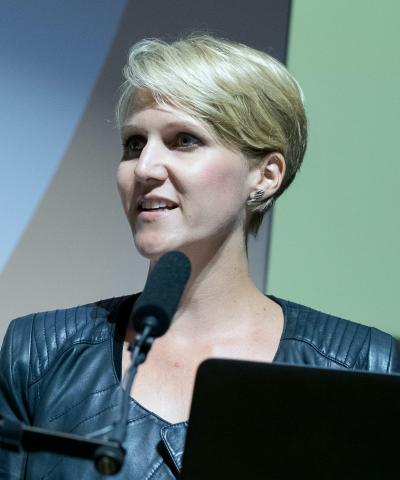
Speaker:
Silvia Lindtner
Date:
2021-04-08 12:30:00
Location:
BlueJeans Event
Prototype Nation: China and the Contested Promise of Innovation
ABSTRACT
How did China’s mass manufacturing and “copycat” production become transformed, in the global tech imagination, from something holding the nation back to one of its key assets? Prototype Nation offers a transnational analysis of how the promise of democratized innovation and entrepreneurial life has shaped China’s governance and global image. Lindtner reveals how a growing distrust in Western models of progress and development, including Silicon Valley and the tech industry after the financial crisis of 2007–8, shaped the rise of the global maker movement and the vision of China as a “new frontier” of innovation. Lindtner’s investigations draw on more than a decade of research in makerspaces, tech incubators, corporate offices, and factories. She examines how the ideals of the maker movement, to intervene in social and economic structures, served the technopolitical project of prototyping a “new” optimistic, assertive, and global China. In doing so, Lindtner demonstrates that entrepreneurial living influences governance, education, policy, investment, and urban redesign in ways that normalize the persistence of sexism, racism, colonialism, and labor exploitation. Prototype Nation shows that by attending to the bodies and sites that nurture entrepreneurial life, technology can be extricated from the seemingly endless cycle of promise and violence.
BIO
Silvia Lindtner (she/her) is an Associate Professor at the University of Michigan in the School of Information and Associate Director of the Center for Ethics, Society, and Computing (ESC). She is a founding member of Precarity Lab, a research collective working on various forms of insecurity, vulnerability, and social and cultural exclusion that digital platforms produce and mediate. She is the co-founder of the China research collective Hacked Matter, dedicated to critically investigating processes of technology innovation, urban design, and production cultures in China. Lindtner's research interests include cultures and politics of technology innovation and entrepreneurship, with a particular focus on the gendered and racialized forms of labor necessary to incubate entrepreneurial life and sustain technological promise. Lindtner draws from more than ten years of multi-sited ethnographic research, with a particular focus on China's shifting position in the global political economy of technology production, economic development, and science and technology policy. She is the author of Prototype Nation: China and the Contested Promise of Innovation (Princeton University Press, 2020). The book reveals how a growing distrust in Western models of progress and development, including Silicon Valley and the tech industry after the financial crisis of 2007–8, shaped the vision of China as a “new frontier” of innovation. Lindtner unpacks how this promise of entrepreneurial life has influenced governance, education, policy, investment, and urban redesign in ways that normalize the persistence of sexism and racist forms of violence and colonial logics of othering. Lindtner’s work contributes to the fields of STS (science and technology studies), cultural and feminist anthropology, China studies, HCI (human computer interaction), global communication studies, science and technology policy, and design. Her research has been awarded support from the US National Science Foundation, IMLS, Intel Labs, Google Anita Borg, and the Chinese National Natural Science Foundation.
Video is not available for this event.
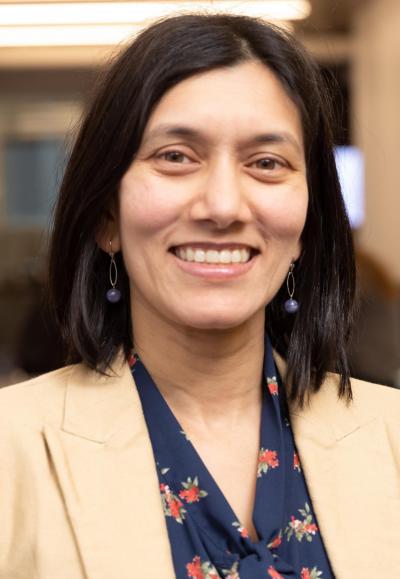
Speaker:
Marshini Chetty
Date:
2021-04-01 12:30:00
Location:
BlueJeans Event
Imagine All The People On A Trustworthy Internet
ABSTRACT
Imagine a world where the Internet caters to all types of users and hosts trustworthy content. Right now, this world seems far off for many reasons. For instance, this world would require us to think more broadly of user needs beyond an `average’ tech-savvy adult user—one who is assumed to be always online with a reliable Internet connection. Moreover, this world would require us to host content that is not misleading or manipulative in some way—content that can be evaluated at face value by various users. To achieve this lofty goal, we first need to deeply understand and catalogue different types of Internet users’ needs and also develop ways to assess and make misleading online content more apparent to end-users.
In this talk, I will present a set of case studies from my research lab that helps further the goal of a trustworthy Internet for all. I will describe various projects geared at understanding a wide variety of Internet users’ needs for online privacy and security in different contexts from children to those in developing contexts. I will also describe work that provides empirical evidence of misleading content online such as `dark patterns’ and disguised advertisements and create solutions to help users to better evaluate this content. These case studies will demonstrate how important it is to study the privacy and security needs of those who do not fit the “average” user mold and demonstrate possible solutions for helping users gain more trust in information on the Internet. I conclude with open questions for imagining an Internet which is more trustworthy and inclusive to all people.
BIO
Marshini Chetty is an assistant professor in the Department of Computer Science at the University of Chicago where she directs the Amyoli Internet Research Laboratory (AIR lab). She specializes in human-computer interaction, usable privacy and security, and ubiquitous computing. Her work has won best paper and honorable mention awards at SOUPS, CHI, and CSCW, and she was a co-recipient of the Annual Privacy Papers for Policymakers award. Her research has been featured in the NYTimes, CNN, Washington Journal, BBC, Chicago Tribune, The Guardian, WIRED, and Slashdot. She has received generous funding from the National Science Foundation, through grants and a CAREER award, as well as the National Security Agency, Facebook, and multiple Google Faculty Research Awards. Marshini started her journey in the USA after she completed her MSc., BSc.(Hons), and BSc. in Computer Science at the University of Cape Town, South Africa (her beautiful home country). She received her PhD in Human-Centered Computing from Georgia Institute of Technology where she was advised by Prof. Rebecca Grinter. Marshini subsequently completed a postdoctoral fellowship at the College of Computing with Prof. Keith Edwards. Following another postdoctoral fellowship at ResearchICTAfrica, she also held faculty positions at University of Maryland, College Park, and Princeton University before moving to Chicago.
Speakers:
Jordan Hill, Matt Golino, Nandita Gupta
Date:
2021-03-25 12:30:00
Location:
BlueJeans Event
MS-HCI Program | Recent Master’s Projects
Jordan Hill: Designing a Contextualized Educational Tool for Multi-Pollutant Air Quality Data.
This project follows a human-centered design process and involves research, design, prototyping, testing, and iteration of data visualizations as well as an interactive system that serves as a contextualized educational resource for multi-pollutant air quality data. The Air Quality Index (AQI) reports air pollution data as a single normalized value. Most public AQI sources either present this value without sufficient supports for deeper exploration of multiple pollutants or are robust data repositories that are too technical to be accessible to non-scientific audiences. My findings indicate many people have little context for understanding how the AQI is generated or what it measures. To combat this knowledge gap, I have created a contextualized, visualization-based platform to support public audiences in exploring air pollution beyond the AQI by displaying contextualized multi-pollutant data.
Matt Golino: Meditation in VR: From Master's Project to Startup.
I will talk about the journey of taking my MS-HCI master's project from idea, to research project, to implementation, to longitudinal study, to startup! I'll talk about my experience with the CreateX accelerator and the ATDC incubator, the differences between building something for academia vs for market, and some of the challenges and victories along the journey thus far!
Nandita Gupta: The Shakti Collective: Storytelling Collective Showcasing People Who Work Within the Field of Digital Accessibility.
User experience (UX) professionals play a crucial role in the accessibility and inclusive design of digital products as they are responsible for ensuring that a user has the best possible experience with their products. Despite this necessary responsibility, UX and related professionals report multiple difficulties in applying accessibility in their work and that was the focus of this project. Based on the exploratory research, we identified barriers within resources and created a storytelling collective that featured people in varied roles within digital accessibility. The Shakti Collective not only motivated other UX professionals to continue working within the accessibility field but also aimed to create a pipeline to introduce other UX professionals to accessibility and inclusive design processes.
BIO
Jordan Hill graduated from the MS-HCI program in Fall 2020. At GT, she was a member of the OrCHID (Organic Computer-Human Interaction with Data) Lab and worked as a Head TA for Dr. Gregory Abowd's undergraduate Human-Computer Interaction course. She has experience in industry designing responsive websites, platforms, and web applications. Her interests lie in data visualization design, interaction design, and product strategy. Matt Golino graduated from Georgia Tech with a Bachelor of Science in Computer Engineering in 2016 and after a few years learning the ins and outs of frontend web development at General Motors, Tech called me back. He spent the last two years earning my Master's Degree in Human-Computer Interaction, honing skills, focusing in the fields of User Experience Design and Research, and getting real world experience with an internship on Google's YoutubeVR team. Since graduating in Spring 2020, Matt has taken his master's project, a virtual reality meditation classroom, and transformed it into a startup: ZenVR! In the startup he plays the role of developer, designer, researcher, CEO, and so much more for this budding company and is learning something new every day. "With the help of the CreateX accelerator, we've taken our first leaps off the ground. ZenVR is currently available in its beta format on the SideQuest store, and we aim to launch on all major platforms this Spring!" Nandita Gupta is a recent graduate from the MS-HCI program, an incoming Program Manager at Microsoft and an accessibility and inclusive design advocate. She has a background in Electrical Engineering and she launched Georgia-Pacific’s first mentoring program for entry-level engineers, and for this, she was named Influential Women of Manufacturing 2019 by Putman Media. In 2020, she was named Google Lime Scholar 2020 by Google for exemplifying leadership and demonstrated passion for computer science, inclusion, and technology. She has spoken at various conferences and events such as TEDx, Grace Hopper Celebration, World Information Architecture Day 2020 and will be sharing her work at Tapia and HCII in 2021.
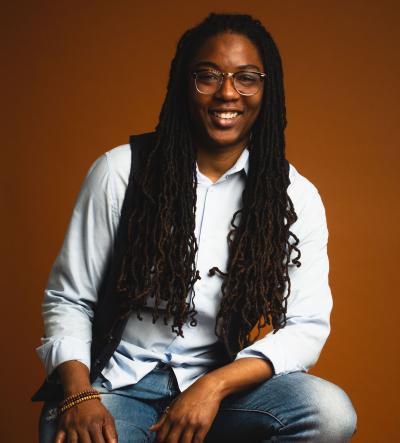
Speaker:
Christina Harrington
Date:
2021-03-18 12:30:00
Location:
BlueJeans Event
The Future is Collectivism: Exploring Technology Co-Design From a Lens of Critical Design
ABSTRACT
The question of who gets to contribute to design futures and technology innovation is an important topic across design and computing fields. This conversation has grave implications for communities that often find themselves an afterthought in technology design, and who coincidentally could benefit most from technological interventions in response to societal oppression. As human-computer interaction continues to frame the intersection of people and technology through a lens of access and humanity, it’s important to consider methods and approaches to computing that are inclusive and equitable, and consider culture and identity as components of interactions. Community-based participatory design allows us to engage those at the margins in design and also considers collectivism as a meaningful approach to speculating community and technology futures. I explore concepts of community collectivism as a way to address challenges of health and racial equity, employing critical theory and frameworks that may better engage marginalized groups. From this talk I hope to build upon the conversation of Who Gets to Future?, and explore recommendations for more equitable technology futures.
BIO
As a designer and qualitative researcher, Dr. Christina Harrington focuses on understanding and conceptualizing technology experiences that support health and racial equity among marginalized groups. Her research as the Director of the Equity and Health Innovations Design Research Lab explores ways to employ design as a catalyst for health equity and socially responsible technology experiences. She explores concepts such as health, social acceptance, and collectivism through community-based participatory design and co-creation, engaging critical design and sociotechnical computing. Through participatory research methods she explores constructs of empowerment and access in design among vulnerable communities that have been marginalized along multiple dimensions of identity (age, race, ethnicity, income, class). Dr. Harrington is an Assistant Professor in the College of Computing and Digital Media at DePaul University and received her PhD from Georgia Tech’s College of Design.
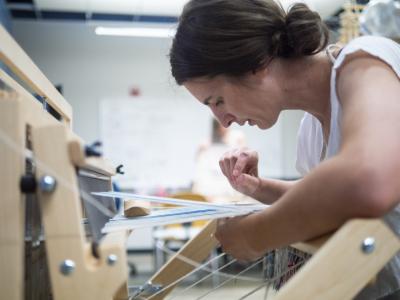
Speaker:
Laura Devendorf
Date:
2021-03-11 12:30:00
Location:
BlueJeans Event
Designing Not Knowing
ABSTRACT
As a design researcher and educator working in human-computer interaction, I often find myself in the business of "empowering" students by teaching them design. As a professor, I write grant proposals that use the magic of design to bring forth preferable futures. Yet, within the present socio-environ-political context, I find myself increasingly conflicted by these claims and asking myself, what, really, can design do? I will not be able to answer any of these questions during this talk because I don't know, but I will argue that the position of not-knowing, humility, and non-expert is useful for critically reflecting on the relevance of our practices. I will present ways that myself, collaborators, and the students with whom I work have been using weaving (sometimes with circuits, some without) as a practice through which to to try to probe, question, and understand what counts as design and the kinds of narratives we must take on in order to be "designers." I aim for this talk to inspire reflection and offer a few tactics for unknowing in order to think otherwise.
BIO
Laura Devendorf is an assistant professor in Information Science and the ATLAS Institute at the University of Colorado Boulder. Her research questions the role of design and making in the wake of increasingly pressing global challenges. She directs the Unstable Design Lab where she works closely with students across engineering, information science, and art to speculate on alternative futures for technology. The lab currently focuses on weaving smart textiles and how themes of slowness, presence, and material negotiation can be used as both a practice and metaphor to formulate these visions. She earned bachelors' degrees in studio art and computer science from the University of California Santa Barbara before earning her Ph.D. at UC Berkeley School of Information. Her research has been featured on National Public Radio and has received multiple best paper awards at top conferences in the field of human-computer interaction.

Speaker:
Kurtis Heimerl
Date:
2021-03-04 12:30:00
Location:
BlueJeans Event
Reclaiming the Internet: A Journey to Community-Held Cellular Infrastructure
ABSTRACT
As a design researcher and educator working in human-computer interaction, I often find myself in the business of "empowering" students by teaching them design. As a professor, I write grant proposals that use the magic of design to bring forth preferable futures. Yet, within the present socio-environ-political context, I find myself increasingly conflicted by these claims and asking myself, what, really, can design do? I will not be able to answer any of these questions during this talk because I don't know, but I will argue that the position of not-knowing, humility, and non-expert is useful for critically reflecting on the relevance of our practices. I will present ways that myself, collaborators, and the students with whom I work have been using weaving (sometimes with circuits, some without) as a practice through which to to try to probe, question, and understand what counts as design and the kinds of narratives we must take on in order to be "designers." I aim for this talk to inspire reflection and offer a few tactics for unknowing in order to think otherwise.
BIO
Kurtis Heimerl is an assistant professor of Computer Science at the University of Washington working on Information and Communication Technology and International Development (ICTD), specifically universal Internet access. Before that, he received his PhD from the University of California, Berkeley, working under Professors Eric Brewer and Tapan Parikh. Kurtis cofounded Endaga, which joined Facebook in 2015 and has also published widely, including top conferences such as ICTD, CSCW, CHI, MobiCom, and NSDI. He was a recipient of the 2014 MIT “35 under 35” award, the 2018 UW early career Diamond Award, and has won paper awards at CHI, NSDI, COMPASS, ASSETS, and DySPAN.

Speakers:
Ceara Byrne, Azra Ismail, Koustuv Saha
Date:
2021-02-28 12:30:00
Location:
BlueJeans Event
Foley Scholar Talks — Spring 2021
Ceara Byrne: Technology for Working and Service Dogs
In the Animal Computer Interaction (ACI) lab, I create and study technologies that improve communication between working dogs, such as dogs trained for search and rescue, and their handlers. In particular, my research focuses on improving the outcomes of service and working dog training. Not all dogs that go into these training programs as puppies have the temperament to become successful assistance and working animals. However, it is very difficult to determine if a dog has a temperament suitable for a service or working animal early on in life. That is where my research comes in. In my work, I investigate how aspects of canine temperament can be detected from interactions with sensors, often placed inside of dog toys that I design and build. After running tests where dogs interact with these sensors, I develop models that use sensor data to predict the success of assistance dogs in advanced training.
Azra Ismail: Human-Centered Design of Artificial Intelligence Systems for Frontline Health
There has been growing interest in the application of Artificial Intelligence (AI) in frontline health, motivated by a shortage of skilled medical experts and medical equipment, particularly in the Global South. The global COVID-19 pandemic has drawn attention to the potential for these efforts, but also their many limitations. These systems may increase the work burden on frontline health workers, many of whom are women engaged in underpaid and invisible care and data work. In this talk, I will examine the AI for Global Health discourse, the gaps in current efforts, and opportunities for design, while centering the perspectives of frontline health workers. I will draw on data from three years of ethnographic fieldwork that I have conducted with women frontline health workers and women from underserved communities in Delhi (India), as well as an extensive literature review of ongoing AI efforts in this space. Finally, I will draw on a rich body of literature on Human-Computer Interaction for Development (HCI4D), post-development critique, and transnational feminist theory to discuss lessons for AI efforts that target social good more broadly.
Koustuv Saha: Computational and Causal Approaches on Social Media and Multimodal Sensing Data: Examining Wellbeing in Situated Contexts
A core aspect of our social lives is often embedded in situated communities, such as our workplaces, neighborhoods, localities, and school/college campuses. The inter-connectedness and inter-dependencies of our interactions, experiences, and concerns intertwine our situated context with our wellbeing. A better understanding of our wellbeing and psychosocial dynamics will help us devise strategies to address our wellbeing through proactive and tailored support strategies. However, existing methodologies to assess wellbeing suffer from limitations of scale and timeliness. Parallelly, given its ubiquity and widespread use, social media can be considered a “passive sensor” that can act as a complementary source of unobtrusive, real-time, and naturalistic data to infer wellbeing. This talk will present an overview of computational and causal approaches for leveraging social media in concert with complementary multimodal sensing data to examine wellbeing in situated contexts. This talk will show how theory-driven computational methods can be applied on unique social media and complementary multimodal sensing data to capture attributes of human behavior and psychosocial dynamics in situated communities.
BIO
Ceara Byrne is a sixth year PhD student in Computer Science at Georgia Tech. She believes in creating things around empathy before everything be it physical or digital. Ceara uses a data-driven approach to develop products that put people and their needs first. She has a masters in both Industrial Design (ID) and Human-Computer Interaction (HCI) from Georgia Tech. Her PhD research focuses on instrumenting dog toys with various sensors for measuring computational ethograms of behavior. With these computational ethograms we are better able to understand aspects of working dog temperament and behavior, and as funding for these centers mainly come from donations, programs can more efficiently train more working dogs or create new programs that can benefit individuals with disabilities. Azra Ismail is a PhD candidate in Human-Centered Computing in the School of Interactive Computing at Georgia Tech. Her research lies at the intersection of ICTD (Information and Communication Technologies and Development), HCI (Human-Computer Interaction), and global health. Her research has been published at premier HCI venues, and has received a Best Paper Honorable Mention award at CHI. Azra is also the co-founder of MakerGhat, a non-profit based in Mumbai that creates safe and open makerspaces to support communities in realizing their ideas for local social, economic, and political change. Koustuv Saha is a doctoral candidate in Computer Science in the School of Interactive Computing at Georgia Tech, where he is advised by Prof. Munmun De Choudhury. His research interest is in Social Computing and Computational Social Science. In his research, he adopts machine learning, natural language, and causal inference analysis to examine human behavior and wellbeing using social media and online data, along with complementary multimodal sensing data. His work has been published at several high prestige venues, including CHI, CSCW, ICWSM, IMWUT, JMIR, ACII, FAT*, and WebSci, among others. He is a recipient of the GVU Foley Scholarship Award and Snap Research Fellowship. He has been a finalist of the Symantec Graduate Fellowship, and his research has won the Outstanding Study Design Award at ICWSM 2019. His research has been covered at prestigious media outlets, including the New York Times, CBC Radio, NBC, 11Alive, the Hill, and the Commonwealth Times. During his Ph.D., he has had research internships at Snap Research, Microsoft Research, Max Planck Institute, and Fred Hutch Cancer Research. Earlier, he completed his B.Tech (Hons.) in Computer Science and Engineering from the Indian Institute of Technology (IIT) Kharagpur. He was also awarded the NTSE Scholarship by the Govt. of India, and holds an overall industry research experience of five years.
Video is not available for this event.

Speaker:
Krystina Madej
Date:
2021-02-25 21:28:00
Location:
BlueJeans Event
Bringing Narrative Authoring into Social Media
ABSTRACT
When social media is perceived only as a vehicle for posting personal history narratives the potential for using its affordances to create literary narratives is lost. We can use social media’s speculative spaces to both create and experience a wide range of interactive and collaborative stories, both non-fiction and fiction. In 2009 The Royal Opera House used Twitter to crowd source Twitterdammerung, a collaborative venture to explore opera as a living art form and make it accessible to everyone. This inspired the Neil Gaiman book Hearts, Keys and Puppetry, a Twitter collaboration published as a BBC Audiobook, also in 2009. In 2014, Grammerly used its blog to crowd-source the book Frozen by Fire from 500 writers in 54 different countries. Crowdsourcing has become common for entertainment platforms such as Netfllix and a new generation of users has higher expectation of helping to shape online stories. High profile narrative experiments notwithstanding, the digital humanities continue to view social media most often as a vehicle for personal histories. This paper presents an ongoing social media and narrative project initiated in 2013 that encourages the broader perspective. It presents social media narratives created in 2019 by small teams of university students who were asked to engage in participatory story creation that used social media in all its affordances. Planning was through social media, content creation was through social media, and the narrative was played out through social media from Instant Messaging to Tweets, from Facebook to LinkedIn, from YouTube to Snap Chat. Students created their own non-fiction narratives (Atlanta Child Murders), explored contemporary fiction (The Handmaid’s Tale), and revisited canonical works (Romeo and Juliet) in ways that reflected their current media culture. One response to Romeo and Juliet shows the value of just such an approach, “I’ve never really connected to the story until now that I’ve seen how it plays out in apps I use every day.”
BIO
Dr. Krystina Madej is Professor of the Practice at Georgia Tech in the School of Literature, Media, and Communication. She researches and teaches about how humans have adapted their narratives to changing media throughout the centuries, Disney's approach to stories across media since the 1920s, and physical play and children's interaction with narrative-based digital games. Her books include Interactivity, Collaboration, and Authoring in Social Media, Physical Play and Children’s Digital Games, and the edited book Engaging Imagination and Developing Creativity. A second edition of the co-authored book Disney Stories: Getting to Digital, first published in 2012, was released in November 2020.

Speaker:
Gregory D. Abowd
Date:
2021-02-11 12:30:00
Location:
BlueJeans Event
Ignorance is Bliss: A Retrospective On My Career at Georgia Tech
ABSTRACT
On July 15, 1994, I began my career on the faculty in the College of Computing at Georgia Tech. Throughout my career, I have cherished the over half a dozen opportunities I have had to give GVU Brown Bag talks on various research activities. My time as full-time faculty at Georgia Tech ends at the end of February 2021, and I will begin a new chapter of my career as the Dean of Engineering at Northeastern University in Boston. I would like to reflect on the 26+ years I have spent at Georgia Tech, the College of Computing, and the GVU Center and try to explain why I think this place is so special. In thinking about a theme for this talk, I was reminded that my career has been a series of shifting research agendas, each one inspired by some life events. In all cases, I was buoyed by a bevy of talented and supportive colleagues and students who gave me the courage to jump into a research topic that I didn’t know much about. That “ignorance” has allowed me to be more fearless than I had the right to be. As I jump into my next career, for which I am also blissfully ignorant, I hope I am lucky enough to be surrounded by excellence that inspires success.
BIO
Gregory D. Abowd is a Regents’ Professor and J.Z. Liang Chair in the School of Interactive Computing at Georgia Tech, where he has been on the faculty since 1994. He also serves as an Associate Dean in the College of Computing. An applied computer scientist, Dr. Abowd's research interests concern how the advanced information technologies of mobile, wearable and ubiquitous computing impact our everyday lives when they are seamlessly integrated into our living spaces. Dr. Abowd's work has involved applications as diverse as education (Classroom 2000), home life (The Aware Home) and health (technology and autism, CampusLife). He and his current and former students are active inventors of new sensing and interaction technologies. He has recently helped to co-create an interdisciplinary research effort, COSMOS, which investigates the collaboration of materials, manufacturing, electronics, computing and design to explore an alternative future computing industry. Dr. Abowd is an ACM Fellow and a member of the ACM SIGCHI Academy. As of March 1, 2021 Dr. Abowd will be the Dean of Engineering at Northeastern University in Boston.

Speakers:
Laurie Olivier & Dr. Franco du Preez
Date:
2021-02-04 12:30:00
Location:
BlueJeans Event
A Wearable-Agnostic IOT Platform: From Sensors to Health Solutions
ABSTRACT
LifeQ is a digital health company focused on the practical application of computational systems biology to providing biometrics and health solutions derived from wearable devices. LifeQ’s unique combination of longitudinal, high coverage, high resolution tracking of numerous lifestyle and physiological signals enables the development of solutions that include the provision of health information for lifestyle management, preventative healthcare, and early disease detection -- including a new Covid-19 early warning and monitoring solution. LifeQ’s health information solutions are hosted within an EU General Data Protection Regulation (GDPR) compliant end-to-end IOT infrastructure. The company works with global leaders in wearables, silicon manufacturers, digital platforms, and insurance. For example, LifeQ is built into the latest Samsung Galaxy smartwatches. It has offices in Atlanta, Amsterdam, and South Africa.
Various content aggregation services exist for wearable and other information streams that track human behavior and physiology. These services are compatible with a wide range of wearable device brands, as well as several types of IOT hardware such as mobile phones and connected body weight scales. These approaches provide scalable access to data from many common end-consumer wearable devices, but lack the necessary standardization to ensure interoperable, high quality data points for downstream applications such as disease monitoring and management, or research. LifeQ has taken a fresh approach to this problem by providing an operating system abstraction layer for supporting sensor level signal acquisition and standardized signal processing to provide standardized, high quality biometrics, while optimizing for constraints such as battery life and payload. The company covers performance on key biometric results derived from enabling more than a dozen commercially available wearable devices spanning several different wearable operating systems using this approach.
BIO
Laurie Olivier earned a Bachelor of Science degree in Electronics Engineering from the University of Pretoria, a Bachelor of Commerce degree in Finance and Strategic Marketing, and a diploma in Datametrics and Operational Research from the University of South Africa. He is a seasoned venture capitalist and entrepreneur who has served on the boards of more than 50 startup and major private and public companies around the world. He is passionate about developing new technologies into successful global startups, and his success in this regard has been recognized by some of the most prominent global media and public service organizations, including the Dow Jones Venture Reporter, the Atlanta Journal Constitution, and the American Israel Chamber of Commerce (SE). Dr. Franco du Preez earned a PhD in Computational Systems Biology at Stellenbosch University and published on standardization and open accessibility of models at the University of Manchester and Stellenbosch University. Franco is passionate about value creation through the intersection of several breakthrough technologies that he has been involved with over the course of his academic and business careers, including high coverage IoT monitoring of human physiology, machine learning, high throughput biology and modelling of complex biological systems.
Video is not available for this event.

Speaker:
Vivian Motti
Date:
2021-01-28 12:30:00
Location:
BlueJeans Event
Assistive Smartwatches to Support Self-Regulation for Neurodiverse Adults
ABSTRACT
Emotion regulation is an essential skill for neurodiverse adults to complete postsecondary education, sustain employment, and live independently. Emotion dysregulation is also one of the major challenges faced by neurodiverse adults, hindering their autonomy and inclusion in society. In special education, personal assistants help neurodiverse adults to regulate their emotions. Such a manual approach is effective, however without technology support it is also inconsistent, obtrusive, and stigmatizing. In this talk, I will present the design, development, and evaluation of Wearable Life--an assistive smartwatch application that empowers neurodiverse individuals to regulate emotions independently. Wearable Life aims to foster inclusion in society, facilitating education, employment, and independent living for neurodiverse adults.
BIO
Vivian G. Motti is an Assistant Professor in the Volgenau School of Engineering at George Mason University. Her work concerns the application of wearable computing to assist emotion regulation for neurodiverse users. Dr. Motti's research interests involve usable privacy, smart homes, and assistive wearables. Dr. Motti directs the Human-Centric Design Lab in the Department of Information Sciences and Technology since 2016. She is a member of ACM SIGCHI and AccessComputing. Her research received financial support from NIDILRR, NSF and TeachAccess.
Video is not available for this event.

Speaker:
Beth Mynatt
Date:
2021-01-21 12:30:00
Location:
BlueJeans Event
From Tire Tracks to Subway Maps: How Computing Innovation Fuels US Industries
ABSTRACT
At the close of 2020, the National Academies of Sciences, Engineering, and Medicine released the report, Information Technology Innovation: Resurgence, Confluence, and Continuing Impact. As the chair of the report committee, in this talk I will give a high level overview of the report, and then describe how my experiences in the GVU Center and in the HCI community informed by contributions to the study.
This series of reports, starting in the mid-1990s, illustrate the complex nature of information technology (IT) research and the interdependencies among various subfields of computing and communications research. This work has dispelled the assumption that the IT sector is self-sufficient by highlighting how government-funded university research has been instrumental to the sector’s commercial success. The 2020 report extends the earlier work by describing key patterns in how research over time has significant cumulative impact, and exploring the ultimate impacts of IT innovation on major U.S. industry sectors.
The report identifies and describes two patterns, resurgence and confluence, reflecting the path from federally funded academic research to economic impact in the US. Resurgence provides examples when economic return follows a period of diminished interest and investment followed by a resurgence of new ideas and enablers leading to significant impact. Confluence provide examples of IT innovations combined with deep domain expertise, design and production knowledge, and new business models to create transformative results in other major sectors.
These reports are best known for its graphic representation of “tracks” that visualize the interplay between academic, industry research, and industry development culminating in commercial impact. The 2020 report now extends this graphic illustrating how streams of innovation combine in powerful ways across US industries.
My personal journey with this work includes the 2015 National Academies workshop that collected first-person narratives that illustrated the link between government investments in academic and industry research to the ultimate creation of new IT industries. In 2018, I helped create a “GVU Tire Tracks” as part of the Nostalgic Futures project that captured GVU’s impact in Graphics & Animation, the Web, Visualization and Visual Analytics, Augmented and Virtual Reality, User Interface Software, Ubiquitous Computing, and Wearable Computing. Through each of these experiences I gained an understanding for how human-centric research has a long track record in innovation captured by diverse US industries.
BIO
Elizabeth D. "Beth" Mynatt is a Regents’ and Distinguished Professor in the College of Computing and the Executive Director of Georgia Tech’s Institute for People and Technology that pursues innovative research to promote healthy, productive and fulfilling lives on a global scale. Mynatt serves on the National Academies Computer Science and Telecommunications Board and the NSF CISE Advisory Board. She has been recognized as an ACM Fellow and a member of the ACM SIGCHI Academy. She is an expert in human-centered computing, interaction design, health informatics, ubiquitous computing, and assistive technology. Her career spans over 20 years at Georgia Tech and previously at Xerox PARC. At Georgia Tech, she was the founding director of the Human-Centered Computing PhD program, past director of the GVU Center, and past director of the HCI MS program.



